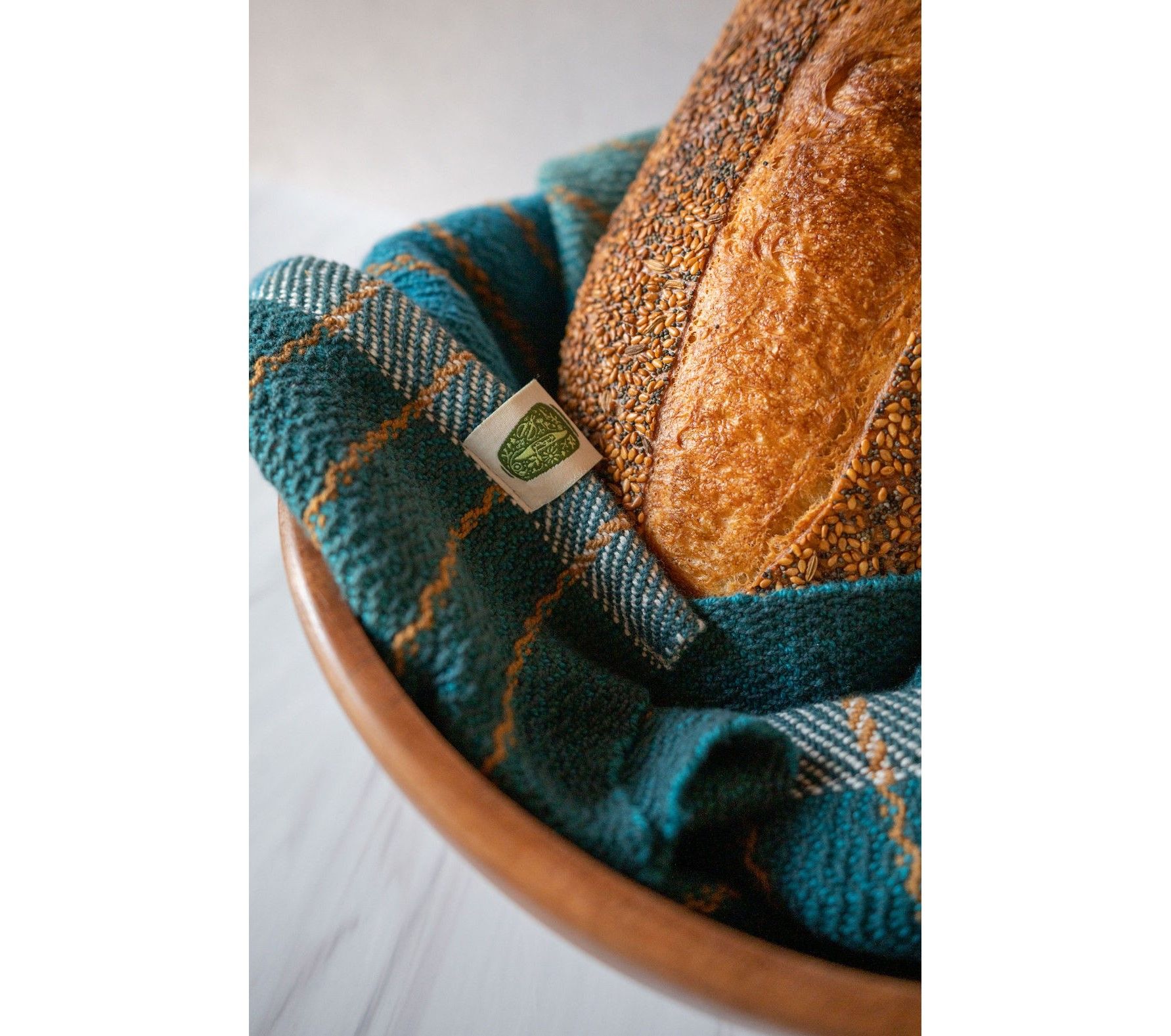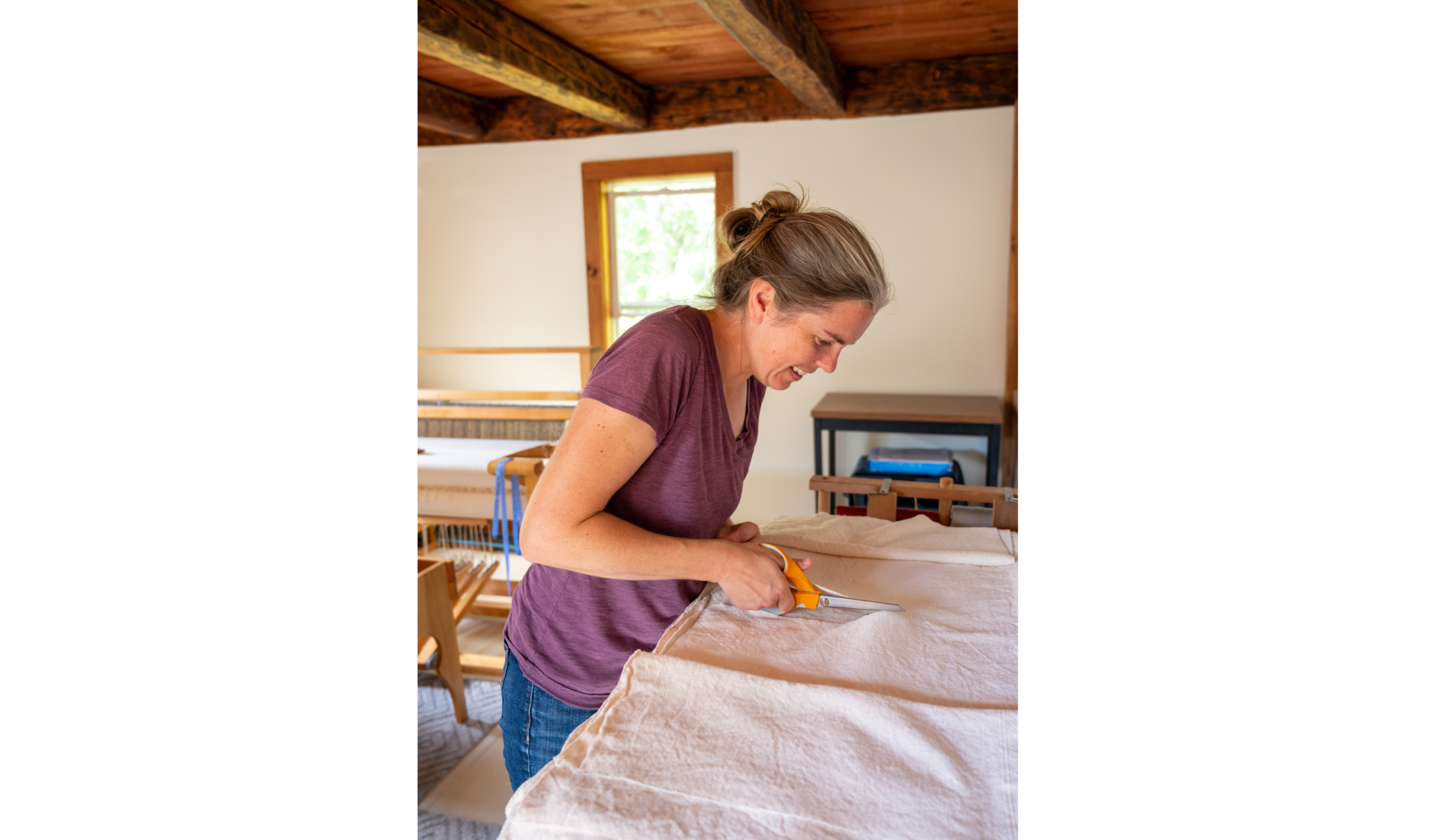Interested in starting your own entrepreneurial journey but unsure what to expect? Then read up on our interview with Hilary Crowell, Owner of The Cultivated Thread, located in Wiscasset, ME, USA.
What's your business, and who are your customers?
The Cultivated Thread is a small-batch weaving studio in Mid Coast, Maine creating handwoven wearables and home goods. It’s mostly a one-person operation though I do contract out a few specific production tasks. I’m most interested in making products that can easily slide into people’s day-to-day lives, so I primarily make handwoven towels. I work exclusively with natural fibers and strive to source organic and/or U.S.-produced materials.
TCT textiles are for people who value using beautiful, handmade items in their day-to-day lives. TCT customers generally value supporting local businesses, appreciate quality items that will last for years, and love a handmade aesthetic.

Tell us about yourself
I went into a full-time business with The Cultivated Thread as I was phasing out of full-time work as an organic produce farmer, and that experience informs much of what I do in the studio today. I am production and efficiency minded from years of working in fields and racing the changing of seasons, working with and against nature. As a farmer, I was surrounded by an incredible palette of colors, and playing with colors is one of my favorite creative parts of the work I do now. I create with daily use in mind and select weave structures and fibers that will translate into items that stand the test of time. By bringing intentionality and care into all stages of the production process, it is my hope that in each piece, I am infusing energy, utility, and beauty that will offer a lifetime of service. I make functional art.
What's your biggest accomplishment as a business owner?
I’ve always said I want TCT to be a good community member. As a small business owner, I am one part of a larger whole in my surrounding community. How can TCT contribute to the neighborhood, to the Maine craft community, and to the customers that are served? How do we acknowledge our past and honor the future? My biggest accomplishment is to identify these questions and to let these values drive the direction and decisions of the business.
What's one of the hardest things that comes with being a business owner?
This is an easy one. It’s not very sexy, but one of the hardest things I face is finding a good, reputable source of materials. TCT is too small for many of the larger companies to wholesale to but too big to be buying from retail outlets. In addition, like many systems in the U.S., there are many flaws in the fiber industry and production. For example, I continue to hunt for the perfect U.S.-grown, dyed, organic unmercerized cotton thread.
What are the top tips you'd give to anyone looking to start, run and grow a business today?
One of my biggest ‘ah-ha’ moments happened during my first year in business when I realized there was no rule book. For as many small businesses that exist in the U.S., there are many ways of running a business. So, one tip is don’t get stuck thinking there is one way of doing things. Try out different options, ask the same question to many people, and don’t be afraid to change what you’re doing if it isn’t working.
Another moment of clarity, very related to this first one, was when I realized that I needed to switch my thinking about inventory. Along the way, I got the idea in my head that having an excess inventory is a bad sign for the business. It took me two years to realize that the holidays are when I have the highest sales and make a good bulk of my income. Handwoven towels are not a quick thing to make, and I realized that I needed to start tucking products away throughout the year to balance my annual workflow. Now I start creating my holiday stash in January, and rather than feeling stressed by having products stacking up in my studio, I feel prepared and confident.
Lastly, when I think of small businesses, I feel each business has two general departments - administrative and operational. For me, the operational is the weaving side of things. I think having a plan is important, and for me, I plan to do the majority of tasks within each department myself. For tasks that take me a long time to learn or I just can’t seem to get right, I outsource to an expert (like taxes!). Every year I pick a few topics from each department to focus on. There’s a learning curve for everything, so I pick two or three things, learn to do them well, then pick another thing to learn. I think it’s really important for small business owners to constantly be learning and challenging themselves to become better operators and/or administrators of their businesses.
Where can people find you and your business?
Website: https://www.thecultivatedthread.com/
Facebook: https://www.facebook.com/cultivatedthread
Instagram: https://www.instagram.com/thecultivatedthread/
If you like what you've read here and have your own story as a solo or small business entrepreneur that you'd like to share, then please answer these interview questions. We'd love to feature your journey on these pages.
Turn your craft into recurring revenue with Subkit. Start your subscription offering in minutes and supercharge it with growth levers. Get early access here.
